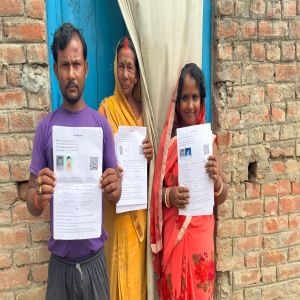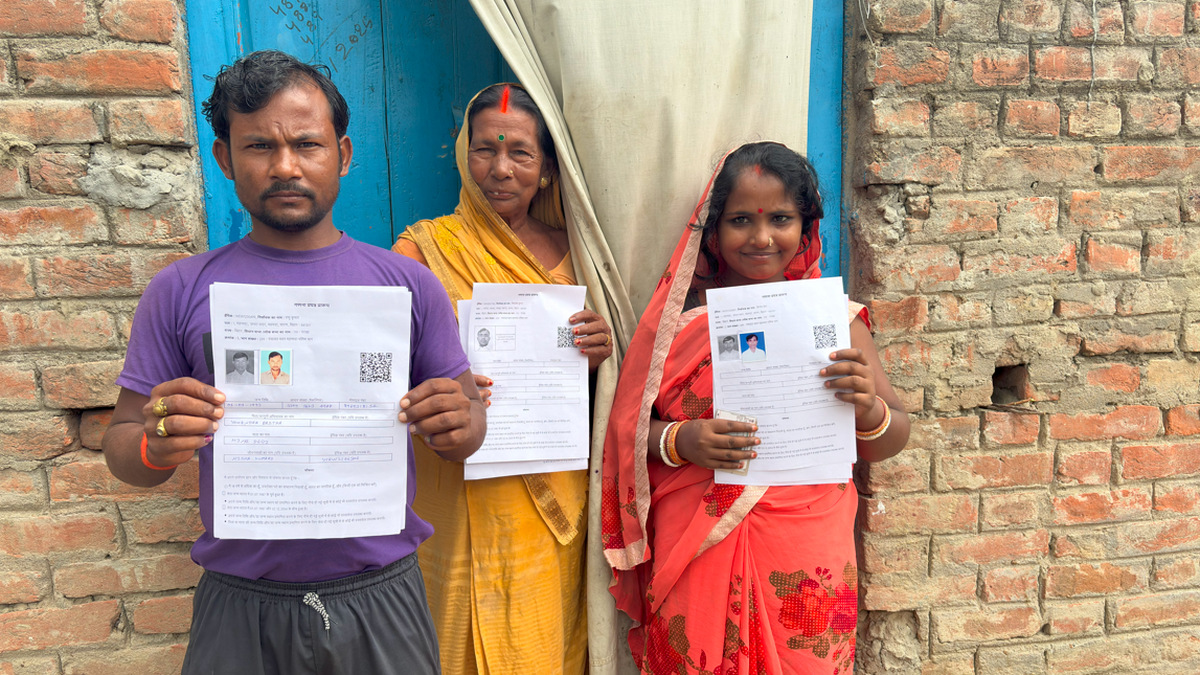
.png) Joseph Maliakan
Joseph Maliakan

The Supreme Court of India, while hearing a bunch of petitions challenging the June 24, 2025 notification of the Election Commission of India announcing that it will begin a Special Intensive Revision (SIR) of the Bihar Voters List on Thursday, July 10, 2025, asked several hard questions to the Election Commission of India.
The petitioners argued that the Special Intensive Revision (SIR) of the Bihar Voters List, announced on the eve of the Bihar Legislative Assembly election scheduled for November this year, is arbitrary and discriminatory. It compels citizens whose names have been on the voters' list for over 10 years to reverify themselves.
A division bench of the Supreme Court of India, comprising Justices Sudhanshu Dhulia and Joymalya Bagchi, while declining to stay the SIR, expressed grave doubts about the Election Commission's plan to hold a SIR of Bihar's electoral rolls months before the Assembly election.
The Supreme Court told the Election Commission, "Your exercise is not the problem ... It is the timing. We have serious doubts if you can manage this exercise. With such a big population of more than eight crore is it possible to link it to the forthcoming election?" the Court wondered.
Justice Dhulia asked the Commission how a person whose right to vote has been taken away would defend his or her right to vote before the election. "There is nothing wrong in having this SIR so no non-citizen do not remain on the rolls ... but it should be dehors (conducted separately from th election)," Justice Joymala Bagchi said.
The Court then asked three questions to the Election Commission. First, the Court wanted to know which section of the Representation of the People's Act allowed the Commission to hold SIR. There is either 'summary revision' or 'intensive revision,' but what is 'Special Intensive Revision'?
Second, the Court asked the Election Commission to explain the Commission's authority to conduct a "special intensive revision," and the validity of the procedure for review and the timing of the revision, just before the election.
Third, the Court asked how the Election Commission will safeguard the individual's right to appeal against exclusion from the voters' list. "... a person will be disenfranchised ahead of the election, and she/he won't have the time to defend the exclusion before voting, Justice Sudhanshu Dulia pointed out.
In this context, Justice Dhulia said, "...courts will not touch the electoral roll once finalised...which means a disenfranchised person will lack the option to challenge the revised list before election."
The Supreme Court also questioned the decision of the Election Commission to exclude Aadhaar from the list of documents deemed acceptable for individuals to reverify themselves on the electoral roll. "Your enumeration is related to identity...the entire exercise is primarily about identity only," the Court observed. "We feel Aadhaar should be there on the list of approved government-issued identities," the Court further said.
Responding to this, the Election Commission maintained that Aadhaar is not technically proof of citizenship because certain foreign nationals can also be issued this ID.
Senior advocate Gopal Subramanian, appearing for one of the petitioners, Association for Democratic Rights (ADR), said that the Election Commission says the last revision was in 2003 when Bihar's population was four crore. Now it is nearly eight crore, and 10 elections have taken place since then. With polls just months away, the EC is carrying out this exercise, with the draft to be published within 30 days.
And despite amendments to the Act that allow Aadhaar for verification of voters, the Commission has said that it will not be considered for verification, Shakaranarayan pointed out. The choice of documents, besides revision itself, is illogical, he said. And exemptions have been made in the case of specific sections, including members of the judiciary. "The Commission will only accept 11 documents ... The Commission said it will not even accept the Voters' identity card issued by the Election Commission, which is absurd," Shankaranarayan said.
The petition filed in the Supreme Court under Article 32 challenges the ECI notification, claiming that the SIR is arbitrary and violative of the universal right to adult suffrage. The petition argued that the identification process shifts the burden of proof onto the individual citizens, requiring fresh applications and documentary evidence of citizenship by July 25, 2025.
The petition argues that the exercise excludes indicators like Aadhaar and ration cards, and even the electoral card issued by the Election Commission, and makes the proof of parents' identity mandatory. Given Bihar's high rates of poverty and migration, such requirements will disenfranchise millions. The petition also complained about the short time frame (four weeks), the absence of prior consultation, the fact that the notification was issued unilaterally, and therefore, the exercise undermines democracy, equality and the right to vote, particularly for the most marginalised.
During arguments, the ECI held that under Article 324 of the Constitution, the ECI has the power to "superintend, direct and control" elections.
In response, Justice Dhulia remarked that the SIR exercise appears to be neither a 'summary' nor a 'special' revision as defined under the statute, but rather an exercise aimed at QUESTIONING CITIZENSHIP!
Senior Advocate Kapil Sibal, intervening on behalf of the petitioners, submitted that under the SIR, low-level ECI officials such as Booth Level Officers (BLOs) are effectively tasked with determining citizenship. Such power rests exclusively with the Union Government. The SC bench agreed with the argument.
And at the end of the arguments, after raising very bold questions, the Supreme Court allowed the ECI to continue the Special Intensive Revision and to examine the Powers, Process and Timing of the exercise. The Court also asked Election Commision of India "IN THE INTEREST OF JUSTICE," to consider Aadhaar card, Elector's Photo Identity Card (EPIC) and ration card (the only thing most of the poor have) in the ongoing SIR of the electoral rolls in Bihar and the fixed the next date of of hearing for July 28, 2025.